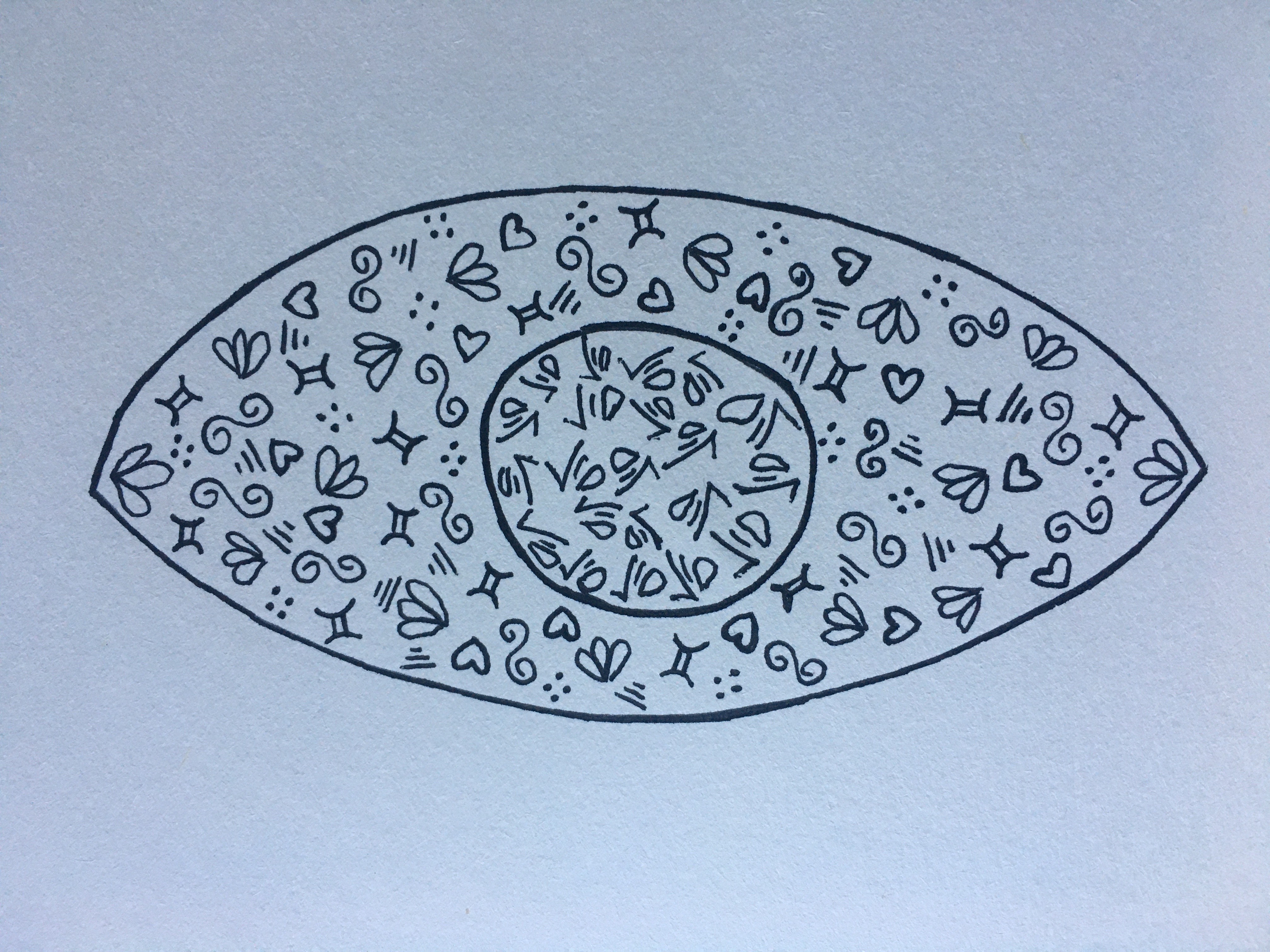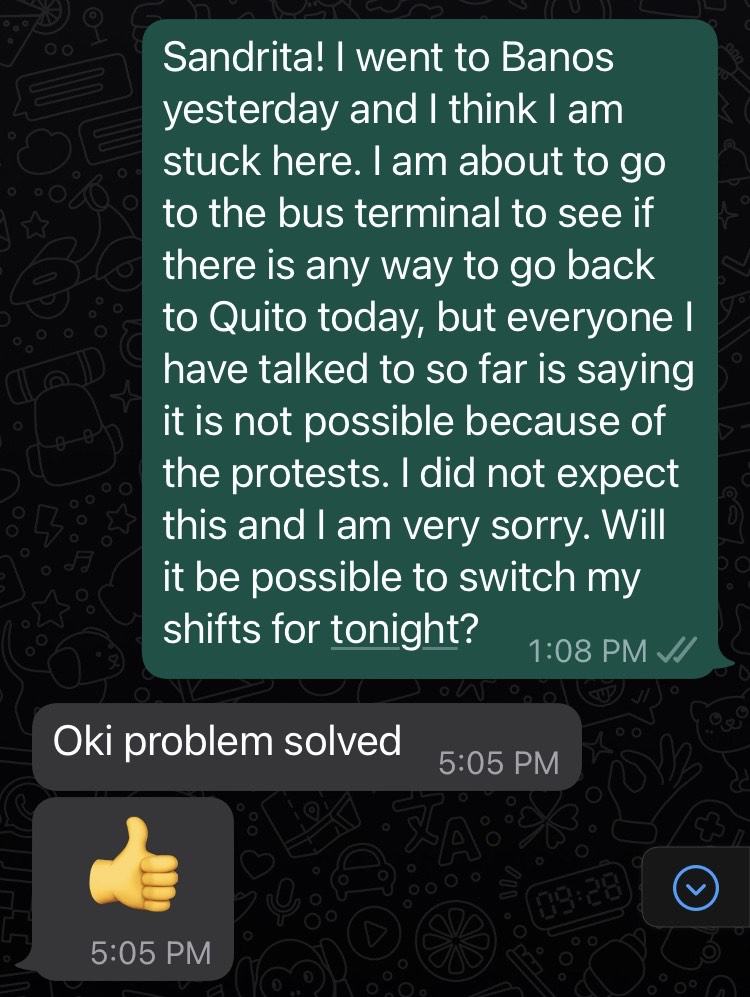How to Be Optimistic

I can trace the start of a long stretch of self-imposed suffering to a day spent at one of the most gorgeous and relaxing towns in Ecuador. On that day, a friend and I enjoyed a breakfast of some savory breads and made our way to the thermal baths at the edge of town. As we marinated in the baths and chatted about my hostel back in Quito, I realized that I had no chance of making it back there in time for my next overnight desk shift.
Panicking, with quickened breaths, I punched out a message to the hostel owners and hit send. My friend reassured me that it probably wasn't a big deal, but it was to me! The owners had extended such kindness to me during my stay. If I showed them callousness in return, what did that say about me? Who was I, this strange foreigner, in their eyes? How would they respond to my message? Thoughts raced through my head: "They're going to be furious. I'm so unreliable. They're going to kick me out of the hostel."
Pessimism has two major causes. Learned helplessness is the belief that nothing you do has any effect on your results. Explanatory style is the way you think about whatever happens to you. You can learn how to adjust both of those attitudes in order to have a more optimistic orientation towards your life.
Your personal explanatory style has three components: Do you view things as permanent or temporary? Pervasive or specific? Personal or impersonal?
To explain these axes, let's consider a scenario where you ask a woman on a date, and she humiliates and rejects you. If you're a pessimist, you'll see the woman's rejection as permanent, "I'll never be able to attract a woman", and pervasive, "I'm just not an interesting person", and personal, "I'm ugly." In contrast, a more optimistic you will take the rejection as temporary, "Other women will like me" and specific, "It was just one isolated situation", and impersonal, "She may have been in a bad mood."
Interestingly, these axes are flipped for positive events. If you get a raise and a promotion at work, in the optimistic view you'll see this recognition as permanent, "I'll continue growing more and more valuable to my employer", and pervasive, "I'm an intelligent and hardworking person", and personal, "My boss values my contributions to the company." But in the pessimistic view, your raise and promotion are temporary, "I'll get demoted as soon as I miss a deadline", and specific, "I'm only confident and capable when I'm working", and impersonal, "I'm just filling the spot of the guy who left the company."
The two proven processes for shifting your disposition from pessimistic to optimistic are taking drugs and doing cognitive therapy. You will set yourself up for success by working with a therapist, but you can do cognitive therapy to change your thinking on your own because it's a self-fulfilling prophecy: if you believe you can change your thoughts, you will! Cognitive therapy has five steps:
1. Recognize the automatic thoughts that arise at the times you feel
worst. These tend to be permanent, pervasive, or personal
explanations that don't reflect reality.
2. Dispute your automatic thoughts by focusing on contrary evidence:
facts about yourself and your life which contradict your negative
automatic thoughts.
3. Make different explanations based on your contrary evidence and
use them to dispute your automatic thoughts.
4. Distract yourself from depressing thoughts.
5. Recognize and question the assumptions that govern so much of
what you do. This lets you discard impossible standards like "Unless
everything I do is perfect, I'm a failure" to more human premises
like "Success is doing my best."
You can remember how cognitive therapy will benefit you with ABC: adversity, belief, consequences. When you encounter adversity, a belief arises, and consequent feelings and actions occur. Your best friend hasn't returned your phone calls, so you think "They must hate me," and you're depressed all day.
In the moment, distracting yourself from a distressing negative belief can help provide relief. But in the long term, shifting negative beliefs help to shift the consequences of adversity. When you notice a negative belief arise, ask what you're saying to yourself. If the belief is accurate, concentrate on the ways you can alter the situation to mitigate the effects of the adversity.
Negative beliefs are often distortions of reality, and disputation is the best tool to help you change your interpretations of adversity. To dispute your negative beliefs, recall evidence that challenges the belief, consider alternative explanations for the adversity, ask yourself what the implications are if the belief is correct, and think about how useful it is to believe the belief.
As you tackle your ABCs with D, disputation, observe how you become energized as you succeed in dealing with your negative beliefs. Try to record them in a journal, or tell someone close to you, or just reflect on them as you lay down to sleep. Give yourself the gift of enjoying the positive changes you make in your thinking.
On average, optimists achieve more, have better overall health, and enjoy their lives more than pessimists. However, a balance of optimism and realism is wise. An undeterred optimist might stick with a bad business idea for too long: "My shrinking customer base is just temporary. This major feature isn't panning out but the product overall is great. No one else is supporting my idea but they were probably distracted today." Be optimistic about your ability to figure out when to temper your unbridled optimism.
Miracle of modern miracles, I have the conversation with one of the hostel owners about my missed shift:

"Oki problem solved 👍" What a simple and healing mantra. Even when the problem is not solved, it's oki 👍. That's optimism at its core.
I still sentence myself to needless bouts of pessimism, I'm human. But I've gotten better at catching myself in the act, at negotiating for a lighter sentence and early release for good behavior. You can do the same, if you want.
The ideas in this essay are taken from Learned Optimism by Martin Seligman. This essay is my submission for Tasshin Fogleman's essay contest.